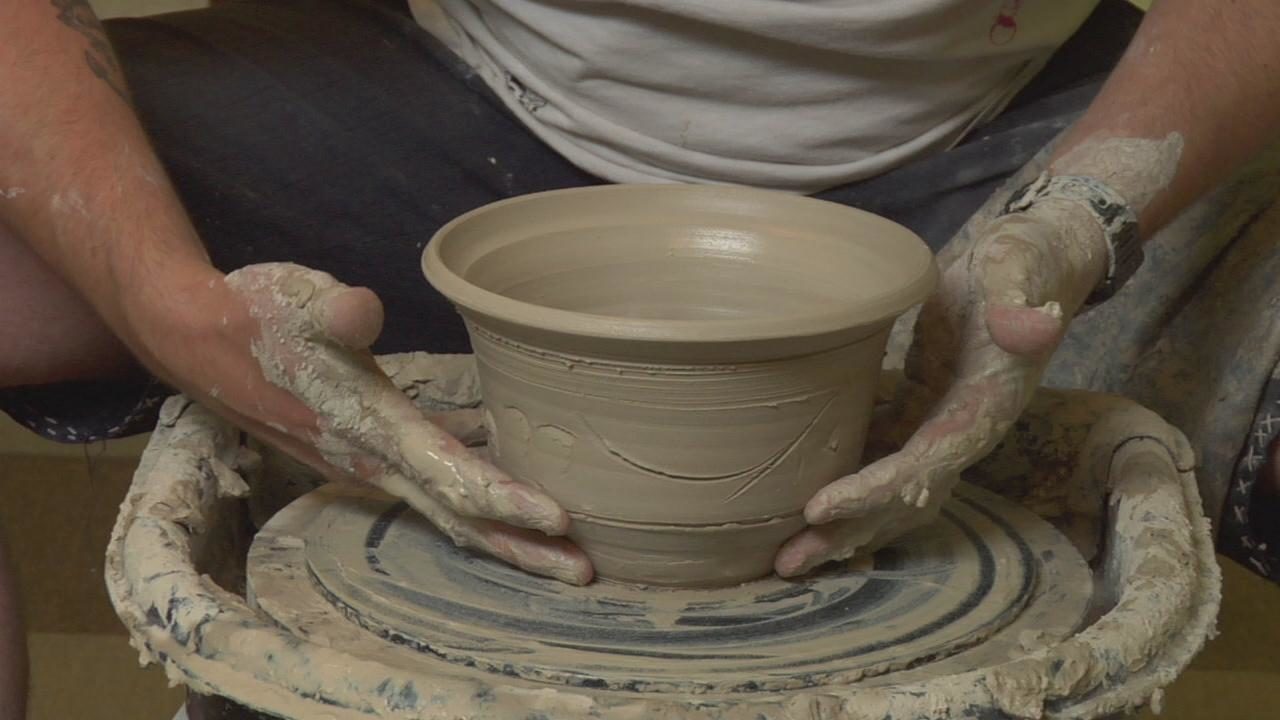Activiteter hvor du bruger dine hænder mindsker stress og hjælper dig med at løse problemer.
Jeg har arbejdet hårdt på et udkast til en ny bog. Dette omfatter en masse tid, hvor man sidder ned og tænker. Siden jeg begyndte på dette projekt er et underligt fænomen dukket op.
Jeg ønsker at gøre rent hele tiden.
Mens jeg sidder ved mit skrivebord, fantaserer jeg om at skrubbe ting. Jeg længes efter at komme igang med de smudsede vinduer i skydedøren, som jeg stirre ud igennem, mens jeg tænker over min skrivning. Jeg gjorde rent i badeværelset i sidste uge som var det en fornøjelse og blev opstemt af at rense badekarret. Det er virkeligt sært.
Kunne dette være en ny måde til at udsætte min skriveproces, som min hjerne har udtænkt?
Apparently not.
I took some time to research this phenomenon. Now, my urge to clean makes perfect sense.
First, when we use our hands on a task that doesn't demand much cognitively, it gives the mind a chance to relax and rest. As a knowledge worker (I'm a doctor, writer, coach, speaker, etc.), I'm constantly using my brain. It's gotten worse with the advent of the smartphone, as I spend so much of my downtime reading interesting articles. I also love reading novels. My brain rarely catches a break.
I get a huge sense of relief and pleasure from doing something with my hands that doesn't require me to think much about anything. It's magnificent.
Second, when my brain is "offline," it gives it a chance to work on problems behind the scenes. From a number of essays and articles that I read on this topic, it's not uncommon for people to have breakthrough ideas while mindlessly working on something with their hands.
My favorite Mind-Body Medicine expert, Dr. Herbert Benson, wrote about this phenomenon (and strategy) in his book, The Breakout Principle. When we engage in a repetitive task, completely taking our minds off whatever problem or issue we have been struggling with, the solution will often magically appear.
Third, working productively with our hands is profoundly pleasurable. There is something primal about this. We are made to be active, and have actively used our hands as part of our daily survival for thousands of years. With the advent of so much technology, many of us move through our days with minimal physical effort. We push a button instead of scrubbing dishes or laundry. Overall, we get far less physical activity than would be optimal for our bodies and minds.
Using our hands may actually be key to maintaining a healthy mood, and the lack of this type of activity may contribute to feelings of irritability, apathy, and depression.
Kelly Lambert wrote about this in her book, Lifting Depression: A Neuroscientist's Hands-On Approach to Activating Your Brain's Healing Power:
"What revs up the crucial effort-driven rewards circuit - the fuel, if you will - is generated by doing certain types of physical activities, especially ones that involve your hands. It's important that these actions produce a result you can see, feel, and touch, such as knitting a sweater or tending a garden. Such actions and their associated thoughts, plans and ultimate results change the physiology and chemical makeup of the effort-driven rewards circuit, activating it in an energized way. I call the emotional sense of well-being that results effort-driven rewards."She also links a lack of hands-on physical activity to the onset of depression, perhaps contributing to the unusually high rates of mood disorders that we see in today's world:
"Effort-driven rewards and other real-world interactive experiences generate much more intense and pervasive reactions in your brain than the neurochemical alterations produced by a single pill. The result? You begin to feel more control over your environment and more connected to the world around you. This reduces stress and anxiety and, most important, builds resilience against the onset of depression."Wonderful, isn't it?
I posted about this phenomenon recently on Facebook, and a number of people shared their experiences.
A friend of mine wrote that when she was going through a particularly stressful experience, an older friend advised her to "clean out some cupboards and some drawers." At first, it seemed like rather strange advice for dealing with a crisis, but according to my friend it "definitely helped."
Another writer friend shared that he likes to garden when he is stuck in his writing or having to face a difficult conversation. He admits that there may be some procrastination involved, but at least it's a "productive" form of avoidance.
What do you normally do when you're feeling stuck or stressed? For a lot of us, we default to eating comfort food, watching Netflix, scrolling through social media feeds, and so on. These things may be relaxing, sure, but I often feel regret afterward. I also don't get much brain relief.
Scrubbing a tub, though? Awesome. Invigorating. Gives me pleasure for days. I admit, I'm not very good about keeping a scrubbed tub, so it's quite an accomplishment when it's so clean that it gleams.
What works for you? It could be anything from painting, to washing dishes, to fiddling with a motor.
The next time you are feeling stressed or stuck, try doing something with your hands. It may be exactly what your brain and body need.
Susan Biali Haas, M.D. is a physician who speaks and writes about stress reduction, burnout prevention, mental health, wellness and resilience.




Læserkommentarer
dig vores Nyhedsbrev